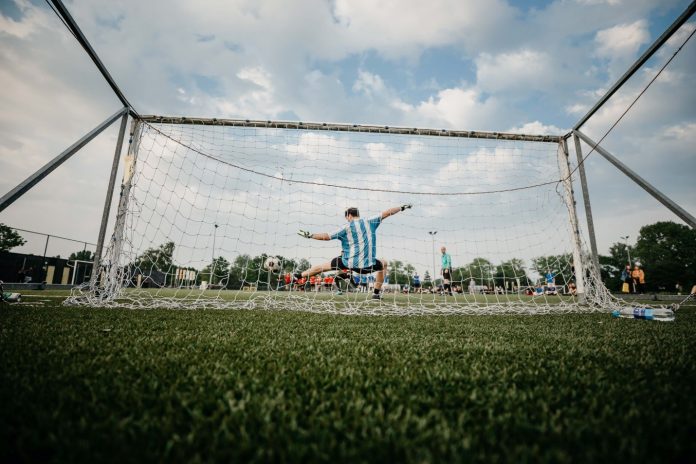
Success in every sphere of life requires the capacity to communicate effectively. Whether it be in the workplace, in relationships, or in everyday life, the ability to clearly convey thoughts and feelings is essential.
Many people recognize the importance of developing strong communication skills. But what about utilizing sports to help foster those skills? Can they really help an individual develop eloquence?
In this guide, we will explore the connection between sports and communication, as well as examine different aspects of communication and how engaging in physical activities can sharpen social skills.
Let’s get started!
The Role of Communication in Sports
Communication plays a crucial role in sports. Among players, this skill is essential for success, whether it’s a team game like basketball or an individual one like tennis. It enables athletes to convey their thoughts, coordinate strategies, and execute game plans seamlessly.
In team games, communication is paramount as it helps players work cohesively towards a common goal. It allows them to coordinate movements, make quick decisions, and adjust strategies based on the actions of their opponents. It leads to better understanding, improved teamwork, and increased chances of winning.
Moreover, this ability goes beyond verbal interaction. Nonverbal cues like gestures, facial expressions, and body language also play a significant role. Athletes use nonverbal cues to understand and anticipate their teammates’ actions and intentions. It enhances their ability to coordinate movements and make split-second decisions.
Additionally, the ability to express yourself in athletics extends beyond the boundaries of the playing field. Athletes often communicate with their coaches, teammates, and opponents through gestures, signals, and eye contact. It helps them gather information, strategize, and maintain sportsmanship.
Developing eloquence through exercise not only benefits athletes in their sporting endeavors but also carries over to various aspects of their personal life.
How Sports Can Improve Verbal Communication Skills
Verbal communication is essential in recreational activity, as sportsmen need to communicate with their teammates, coaches, and referees to strategize, coordinate, and ensure smooth gameplay. Here are some ways in which games can improve these skills:
● Clear and concise instructions:
In team games, it requires athletes to give and follow instructions quickly and clearly. This helps in conveying game plans, tactics, and strategies to teammates.
● On-field coordination:
It enables players to coordinate their movements and positions on the field. By communicating their intentions and actions, players can ensure smooth gameplay and avoid collisions or confusion.
● Leadership and direction:
Recreational activities provide opportunities for athletes to develop leadership skills. The ability to express yourself verbally allows captains and team leaders to guide and motivate their teammates, enhancing teamwork and overall performance.
● Decision-making:
Athletics require quick decision-making on the field, and the ability to express yourself verbally is crucial in this process. Players can collectively make informed decisions that benefit the team by communicating their thoughts and suggestions.
● Conflict resolution:
In competitive games, conflicts may arise between players or teams. Effective verbal communication skills enable athletes to resolve conflicts through calm discussions and negotiations, promoting fair play and sportsmanship.
How Sports Can Improve Nonverbal Communication Skills
Nonverbal communication plays an essential role in sports. These cues can convey a lot of information to teammates and opponents during games. Therefore, exercising offers a unique opportunity to develop and refine this ability.
Here are a few ways in which recreational activities can improve these skills:
● Increased awareness:
It can help individuals become more aware of their body language and nonverbal cues. Individuals can improve their posture, body language, and gestures by observing and emulating successful athletes.
● Nonverbal coordination:
It requires players to coordinate nonverbal cues such as hand signals, nods, and eye contact with their teammates. With practice, players learn to coordinate their actions without having to communicate verbally.
● Understanding body language:
Opponents use body language when playing to signal their intentions, weaknesses, or strengths. Observing and interpreting body language can help players make quick decisions and react accordingly.
● Control of emotions:
Sports can be highly emotional and challenging. However, athletes who can control and express their emotions through nonverbal cues can improve their ability to express themselves. For example, a team captain who remains composed in stressful situations can inspire and motivate others.
Examples of Sports that Enhance Communication Skills
Now that we have established the important role that communication plays, it is worth taking a closer look at some specific examples of those particularly effective at developing this ability. Here are a few:
● Basketball:
Basketball is a great example of a game that relies heavily on communication. Players must constantly talk to one another to coordinate on both offense and defense, whether it’s calling out screens, making switches, or directing traffic on the court.
● Volleyball:
Like basketball, volleyball requires a lot of communication to be successful. Players must call out who will take the ball, what type of serve is coming, and where they will hit it.
There is also a lot of nonverbal communication involved in volleyball, such as using hand signals to indicate how the ball will be passed.
● Soccer:
Soccer is another game that emphasizes this ability. Players must talk to one another to coordinate passes and ensure they are in the right positions on the field. This is particularly important for defenders who need to communicate with one another to ensure that they are covering all the right areas.
● Ultimate Frisbee:
Ultimate Frisbee is a fast-paced game that requires a lot of communication. Players must constantly call out where they are on the field and who they are guarding. They also need to communicate to coordinate offensive plays and set up their teammates for scoring opportunities.
● Running
If we step away from professional sports for a little bit and talk about those that regular people take up, then running is perfect for improving communication skills. Those who go to the gym to run usually meet like-minded people. Those who prefer to run somewhere in the park usually take a dog to keep them company. Fun fact: dog owners, as Nuwber states, are more athletic than cat owners. If you take your four-legged companion for a run with you, the chances are you will meet a friend or two.
Challenges in Communication During Sports
Communication is crucial in playing games, but it’s not always easy. There are several challenges that athletes face when it comes to this essential skill. Some of these challenges include:
● Noise and distractions:
The loud crowds, music, and other distractions can make it difficult for athletes to hear and understand one another on the field or court.
● Time constraints:
In fast-paced games, athletes often have limited time to communicate with their teammates, making it challenging to convey messages quickly and effectively.
● Different communication styles:
Each athlete may have their preferred communication style, making it essential to find common ground that works for everyone.
● Language barriers:
In international competitions, language barriers can hinder effective communication among athletes from different countries.
Strategies to Improve Communication Skills in Sports
Effective communication helps players coordinate their movements, make quick decisions, and strategize effectively.
However, this ability doesn’t always come naturally, and it’s important to actively work on improving it. Here are some strategies that can help:
● Practice active listening:
Encourage players to actively listen to their teammates by maintaining eye contact, nodding to show understanding, and asking questions for clarification.
● Use clear and concise language:
Teach players to communicate their thoughts and instructions clearly and concisely, avoiding ambiguity or confusion.
● Develop nonverbal cues:
Nonverbal cues such as hand signals or gestures can help convey information quickly and effectively during fast-paced games.
● Foster trust and respect:
Building a positive team environment based on trust and respect encourages open communication and sharing of ideas and feedback.
● Role-playing and scenario training:
Engage players in role-playing exercises and scenario-based training to simulate real-game situations and enhance their ability to interact under pressure.
● Provide feedback and reflection opportunities:
Regularly provide feedback to players on their communication skills and encourage them to reflect on their performance to identify areas for improvement.
Key Takeaways
Sports can provide an excellent opportunity to develop good communication skills. Athletes and those interested in physical activities can improve this ability and understand the importance of teamwork and collaboration through games.
However, communication in sports is not without challenges, and it’s crucial to learn effective strategies to overcome these obstacles.




